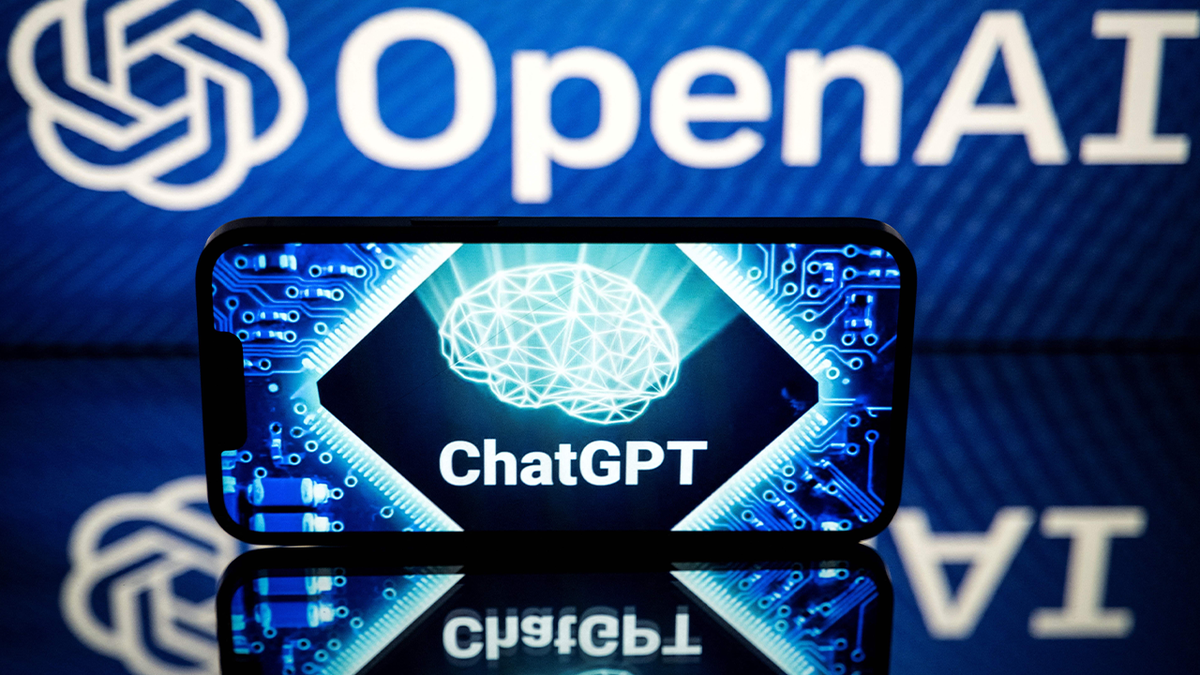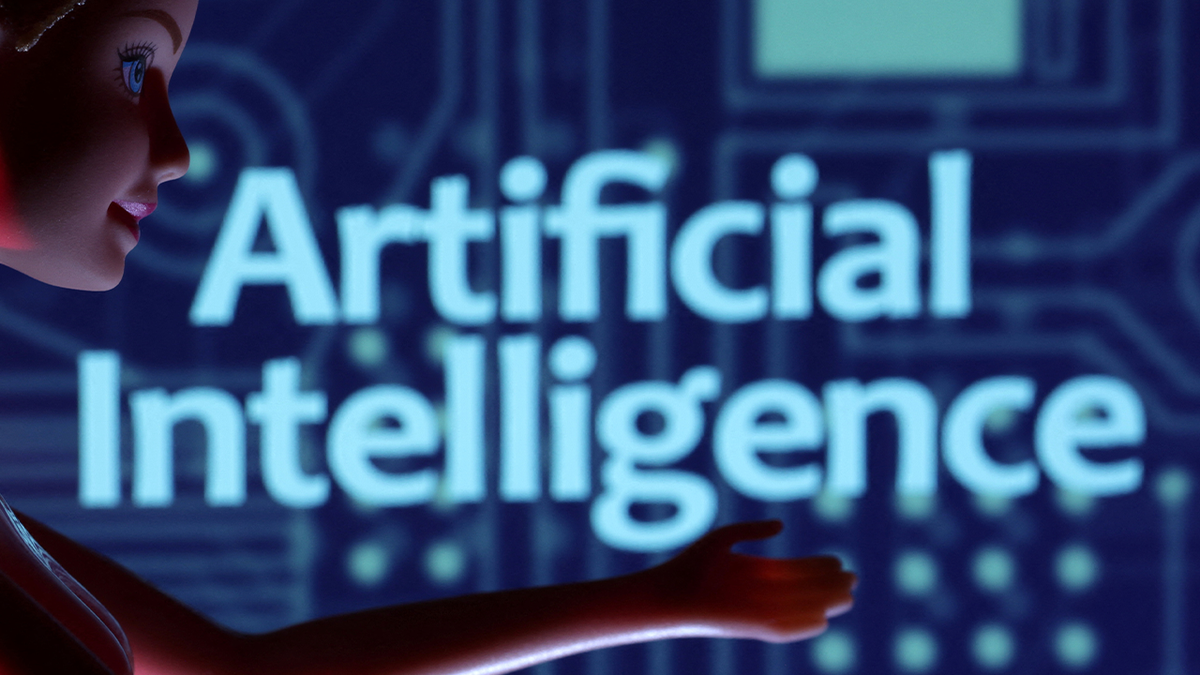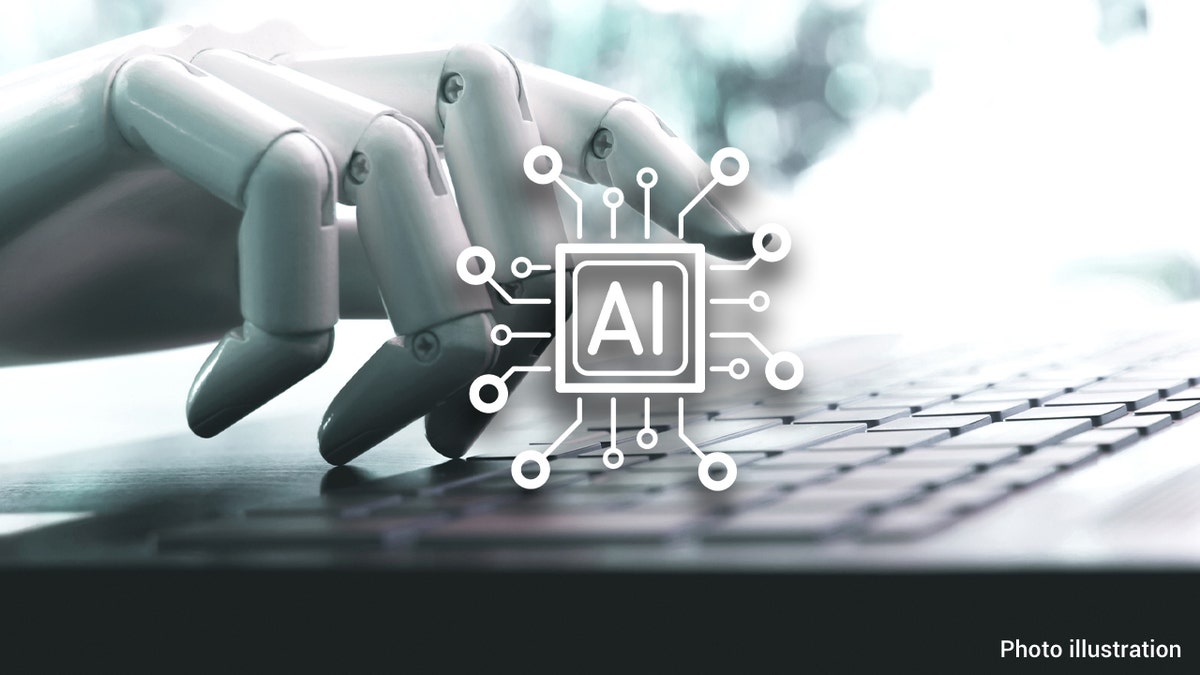Should we fear artificial intelligence? Connor Leahy touches on human skepticism of AI
Connor Leahy advises whether humans should be fearful of artificial intelligence or not and where AI is expected to be in the future
Many experts worry the rapid developments of artificial intelligence may have unforeseen disastrous consequences for humanity.
Machine learning is designed to assist humans in their everyday life and provide the world with open access to information. However, the unregulated nature of AI could lead to harmful consequences for its users and the world as a whole. Read below to find out the risks of AI.
- Why are humans so afraid of AI?
- Is artificial intelligence dangerous?
- In what situations could AI be dangerous to humans?
- What are the real-life risks of AI?
- What are the hypothetical risks of AI?
- What are the privacy risks of AI?
- Why should you perform your own research on AI?
CHATGPT AND HEALTH CARE: COULD THE AI CHATBOT CHANGE THE PATIENT EXPERIENCE?
1. Why are humans so afraid of AI?
The emergence of artificial intelligence has led to feelings of uncertainty, fear, and hatred toward a technology that most people do not fully understand. AI can automate tasks that previously only humans could complete, such as writing an essay, organizing an event, and learning another language. However, experts worry that the era of unregulated AI systems may create problems for humanity as it continues to evolve.

Experts worry that programs such as ChatGPT may spread misinformation and be programmed with a political bias. (LIONEL BONAVENTURE/AFP via Getty Images)
Some fear AI due to the unknown. Right now, the rapid growth of AI technology has humans worried that it will eventually be able to outsmart them.
"AI, if you just improve it without limitation, will be smarter than human. And by default, it will be far more powerful than human," Connor Leahy, CEO of Conjecture, told Fox News Digital.
"It will be able to deceive humans, it will be able to manipulate them. They'll be able to develop new technologies, much more powerful new weapons, new systems that we cannot understand, and we can't control."
Leahy also described what could happen if AI becomes too powerful, and the danger it could pose if it is indifferent to the human race.
"If such systems exist, it's like having an alien species on our planet. And if that alien species is hostile to us, or they even are just indifferent to us, we're in big trouble."
Some developments in AI have alarmed humans, specifically due to its inaccuracies and bias.
AI systems can articulate complex ideas coherently and quickly due to large data sets and information. However, the information used by AI to generate responses tends to be incorrect because AI's inability to distinguish valid data. The open-access usage of these AI systems may further promote this misinformation in academic papers, articles, and essays.
In addition, the algorithms that compose the operational capabilities of AI are built by humans who naturally collaborate with their own political and social biases.
If humanity becomes reliant on AI to seek out information, then these systems could bend research in a way that benefits one side vs the other. Certain AI chat programs, such as ChatGPT, have faced allegations of operating with a liberal bias by refusing to generate information about topics like Hunter Biden's laptop scandal.
2. Is artificial intelligence dangerous?
Artificial intelligence can be advantageous to humans, including by way of streamlining simple and complex everyday tasks, and acting as a ready-to-go 24/7 assistant. However, AI does have the potential to get out of control.
"There are many already existing dangers, which are already a problem," Leahy said. "These systems already are unreliable. They can already be used to generate spam and misleading information. They can be used for catfishing. Stuff like this is already possible," he continued.
One of the dangers of AI is its ability to be weaponized by corporate entities or governments to restrict the rights of the public. For example, AI has the capability of using the data of facial recognition technology to track the location of individuals and families. China's government regularly uses this technology to target protesters and those advocating against regime policies.
Moreover, AI can be of assistance to the financial industry by advising investors on market decisions. Companies use AI algorithms to help build models that predict future market volatility and when to buy or sell stocks. However, algorithms do not use the same context that humans use when making market decisions and do not understand the fragility of the everyday economy.

Companies using artificial intelligence to filter out applicants during the hiring process may lead to discrimination. (REUTERS/Dado Ruvic/Illustration)
AI DATA LEAK CRISIS: NEW TOOL PREVENTS COMPANY SECRETS FROM BEING FED TO CHATGPT
AI could complete thousands of trades within a day to help boost profits but may contribute to the next market crash by scaring investors. Financial institutions need to have a deep understanding of the algorithms of these programs to ensure there are safety nets to stop AI from overselling stocks.
Religious and political leaders have also noted how the rapid development of machine learning technology can lead to a degradation of morals and cause humanity to become completely reliant on artificial intelligence. Tools such as OpenAI's ChatGPT may be used by college students to forge essays, thus making academic dishonesty easier for millions of people. Meanwhile, jobs that once gave individuals purpose and fulfillment, as well as a means of living, could be erased overnight as AI continues to accelerate in public life.
3. In what situations could AI be dangerous to humans?
Artificial intelligence can lead to invasion of privacy, social manipulation, and economic uncertainty. But another aspect to consider is how the rapid, everyday use of AI can lead to discrimination and socioeconomic struggles for millions of people. Machine learning technology collects a trove of data on users, including information that financial institutions and government agencies may use against you.
A common example is a car insurance company raising your premiums based on how many times an AI program has tracked you using your phone while driving. In the employment arena, companies may use AI hiring programs to filter out the qualities they want in the candidates. This may exclude people of color and individuals with fewer opportunities.

Over the last few years, the use and popularity of AI has grown rapidly across the world. (iStock)
The most dangerous element to consider with artificial intelligence is that these programs do not make decisions based on the same emotional or social context as humans. Although AI may be used and created with good intentions, it could lead to the unforeseen dangers of discrimination, privacy abuse, and rampant political bias.
It can be difficult to pinpoint examples of when AI might pose a problem to humans, since predicting advancements is nearly impossible.
"There are many ways a human could be dangerous. AI doesn't have emotion. So, you have a completely sociopathic system that is smarter than all the humans that never sleeps, never rests, can work all the time and is extremely good at hacking and coding," Leahy said. "What happens if these systems fall into the hands of people who are dangerous, and who do want bad things for the world?"
4. What are the real-life risks of AI?
Artificial intelligence poses several real-life risks to individuals across the class spectrum in the United States, including economic uncertainty and legal trouble.
For example, in February 2023, Getty Images, one of the world's largest online photography companies, filed a lawsuit against Stability AI, a popular text-to-machine learning generator. AI is largely unregulated by the federal government, however, Getty's lawsuit could potentially set the legal framework for machine learning via the court system. Therefore, legal risks exist for AI generators backed by multi billion-dollar companies.
Other risks of AI include dealing with a faulty AI navigation system that leads you in the wrong direction and makes you late for an appointment or significant event. Self-driving cars operate on a complex machine learning technology and are utilized by automobile companies such as Tesla. These AI cars have malfunctioned in the past and caused accidents that have led to serious injury and death.
ARTIFICIAL INTELLIGENCE QUIZ! HOW WELL DO YOU KNOW AI?
Technology, as we know it, has always had risks and rewards; this isn't a new idea.
"Every technology that has ever been invented, really, or almost every one has been a double-edged sword. They give us power, they give us more control over our environment, which can be used for good and also for evil. It can also cause harm," Leahy said.
As AI technology advances, there is more room for negative outcomes.
"If you could get 1000 Einsteins to work on any project you want for $10 an hour, what would be possible? It would be crazy what could be possible in the future there," Leahy said. "There are risks from if we can even control these systems."
If humans control AI systems, misuse of technology could be a true threat. AI also has the power to alter the day-to-day functions of today's typical society.
"How do we deal with this different society where there's no jobs? Like, why would there be jobs? You know, all the labor is automated, all the thinking is automated. What now?" asked Leahy. "I don't have an answer to this. Maybe we'll all just relax and have a great time. Or maybe we're like, 'No, we don't want this, actually we do we love having work or labor or whatever.' I don't know. I don't have the answer for this."
In the future, Leahy feels that the world will look a lot different than it does today in due time.
"The only prediction I can really make is that I don't expect this to slow down. I expect things to go even faster," he said.
5. What are the hypothetical risks of AI?
The economic devastation resulting from the accelerated development of artificial intelligence has the potential to change the lives of millions of lower and upper-income families forever. For instance, Goldman Sachs released a report in March 2023 that predicted that AI could potentially eliminate 300 million around the world, including 19% of existing jobs in the United States.
6. What are the privacy risks of AI?
Artificial intelligence is prevalent in the lives of millions of people through a variety of different technologies, including products such as Apple's Siri, Amazon's Alexa, and Microsoft's Cortana. Personal data collection is regularly used by these AI assistants in order to operate effectively.
Leahy noted the early developments in AI that pose a threat, specifically those built for cyber weapon capabilities and hacking. Governments or private corporations could use AI technology to exploit, investigate, or monitor private citizens.
"Currently, there is a lot of limitations on AI systems, where you train them on lots of data. And the truth is, many people don't really know what is in those datasets that they're trained on," Leahy explained. "These are unbelievably massive dumps of information from the Internet, and books and papers and all kinds of stuff. And a lot of that includes information that is personally identifiable information or information that shouldn't be shared unnecessarily. And these systems do suck up this information."
7. Why should you perform your own research on AI?
Artificial intelligence is a controversial topic on which experts have varying opinions. Data scientists have performed research on AI for a number of years, more than one might think, and they have individually come to differing conclusions on the benefits, drawbacks, and risks of the innovation.
Because of this, it is important to do your own research when both understanding AI and making your own decisions with respect to its risks and benefits.
One way to obtain an understanding of the level of bias that is truly present with AI is to perform your own trial and error testing with the chatbots. Ask questions or discuss topics you have a great understanding of and distinguish between truth or bias from the answers the bot outputs.
CLICK HERE TO GET THE FOX NEWS APP
While chatbots are the latest and most exciting revolution in AI for the public, beware that it likely will not end there. Acknowledging there will be advanced innovations to come will prepare you for more research in the future.
Beyond understanding bias in AI innovations, having an understanding of the past, present, and future of the technology will also guide you in making decisions to trust or use AI. There are a number of books, blogs, podcasts, articles, videos, etc. for you to read and watch. AI education comes in nearly all forms, from basic to advanced instruction.
This technology isn't going anywhere. Rather, it is just the opposite. That is why it's important to keep yourself up to date and informed about the new technologies that come into play.



